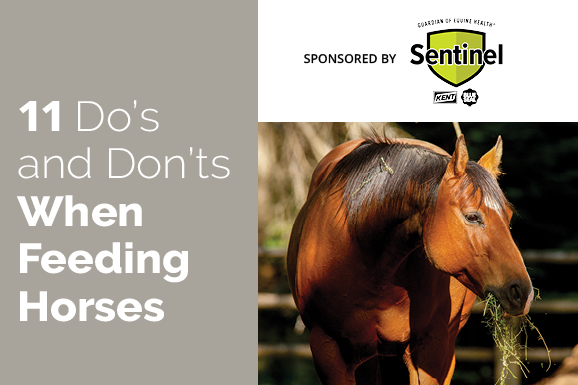
11 Do’s and Don’ts When Feeding Horses
Delve into nutrition topics key to keeping your horse healthy and happy. Sponsored by Sentinel Equine Nutrition.

Delve into nutrition topics key to keeping your horse healthy and happy. Sponsored by Sentinel Equine Nutrition.

Find out whether a horse diagnosed with ulcers should be on a special diet.

Old wisdom tells us not to feed horses before exercise. But this outdated belief might be hurting your horse.

Learn to read the vast and varied signs of equine gastric ulcer syndrome.

Researchers believe adding alfalfa pellets to your horse’s diet might help manage and prevent ulcers in the lower region of the stomach.

Two experts weigh in on common equine hindgut problems and how you can manage them. Sponsored by Purina Animal Nutrition.

Getting back to basics and simplifying meals might be the key to keeping the horse’s hindgut healthy and functioning properly.

When does a horse need selenium supplementation, and what’s the best way to provide it? An equine nutritionist weighs in.

Proper nutrition can make or break joint health. Here’s what you should know.

Focusing on consistent and balanced nutrition will help reduce your horse’s stress levels at shows.

An equine nutritionist answers common questions about beet pulp, which has long been a mainstay in many feed rooms for horses, especially during the winter months.

Decipher fact vs. fiction when it comes to the complicated world of feeding horses.

Find out how to design an affordable feeding program while still meeting your horse’s nutritional requirements.

Here’s a look at what hair analysis and bloodwork each can tell you about your horse’s nutritional health.

A nutrition expert offers advice for ensuring free-fed horses don’t overeat hay.

Ditch traditional bran mashes (and the issues they can cause) for forage feeding to keep horses warm.
Stay on top of the most recent Horse Health news with
"*" indicates required fields